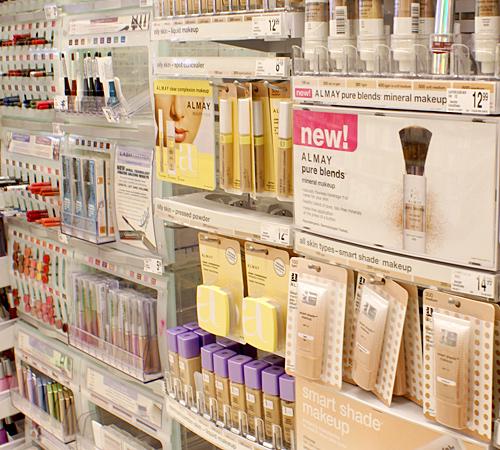“Green” makeup trend grows

With more attention given to the importance of using organic matericals, cosmetics, such as those found at Walgreens, are making
Mar 26, 2008
Last updated on May 12, 2016 at 11:14 p.m.
Cosmetics and skin care companies have joined the natural and organic movement with products aimed to provide benefits both for the environment and the consumer.
Consumers have many choices in the skin care products and makeup market, including store brands, large brands such as Estee Lauder, or small brands with environmental and natural goals.
Cosmetics Without Synthetics, a producer of natural cosmetics, has been marketing their skin, hair and body care products for more than a decade, said Marj Melchiors, president of the company.
“There is a difference between organic and natural,” Melchiors said. “Natural means the ingredients are not synthetic or toxic, which is better for the consumer.”
Get The Daily Illini in your inbox!
Many makeup products contain ingredients called parabens or other common preservatives, which may be harmful and have been linked to certain cancers and other health problems, she added. None of the products produced by Cosmetics Without Synthetics contain parabens, Melchiors said.
“We live in an increasingly toxic world,” said Ray Mauro, manager of global product development for Origins cosmetics. “From the food we eat, to the air we breathe, we are battling a constant assault of pollutants that have been linked to a host of health concerns.”
Aside from natural items, another company, Pangea Organics, produces all organically-certified body care and cosmetic products including lip balms, shower gels, facial creams, hand soaps and lotions, said Chris Petry, an account manager at Pangea.
These organic products are made from ingredients farmed without chemical fertilizers, pesticides or insecticides, he added.
“Everything is done naturally and with components of the earth,” Petry said. “It’s really good for the body and the mind.”
Petry added that since there are not well-defined standards for organic cosmetics, consumers need to be very careful about reading labels, being educated and doing their research about what is in the products they are using on their face and body.
Large corporations such as Estee Lauder are also coming into the organic age with an organic product line produced by Origins cosmetics, Mauro said.
Many of the Origins products carry an organic seal from the U.S. Department of Agriculture, meaning that at least 95 percent of the ingredients were produced organically.
These products include lip balms, massaging oils and face lotions, Mauro added.
“Think of your skin as a sponge that absorbs more than half of what is applied to it,” Mauro said. “If you are conscious of what you put on your skin then you will want to use products that are truly organic.”
Although these natural and organic products may be better for the environment and for consumers’ health, the costs to produce and buy them may also be higher.
Naturally-made products cost more in stores because the raw materials cost more for the farmers and producers, Melchiors said.
“Hopefully as more and more farmers jump on the organic bandwagon, the higher prices will slowly begin to go down,” Petry said.
In spite of increased prices, sales for natural and organic cosmetics and skin care have been soaring, officials said.
Cosmetics Without Synthetics has seen more demand for their products, but along with demand has come more competition, Melchiors said.
More people are increasingly aware about natural makeup and trying new products, which can only bring more benefits for everyone involved, she added.
Pangea Organics alone has been growing on an average of 250 percent a year in sales and predicts continued strong numbers and growth through 2012, Petry said.
The natural and organic personal care market overall has growth expectations of 12 percent by 2011 as people become more aware and concerned about health and environmental issues, Mauro said.
“The human race is starting to have a shift in their level of consciousness,” Petry said.
“Both in what’s better for them and what’s better for our planet.”





